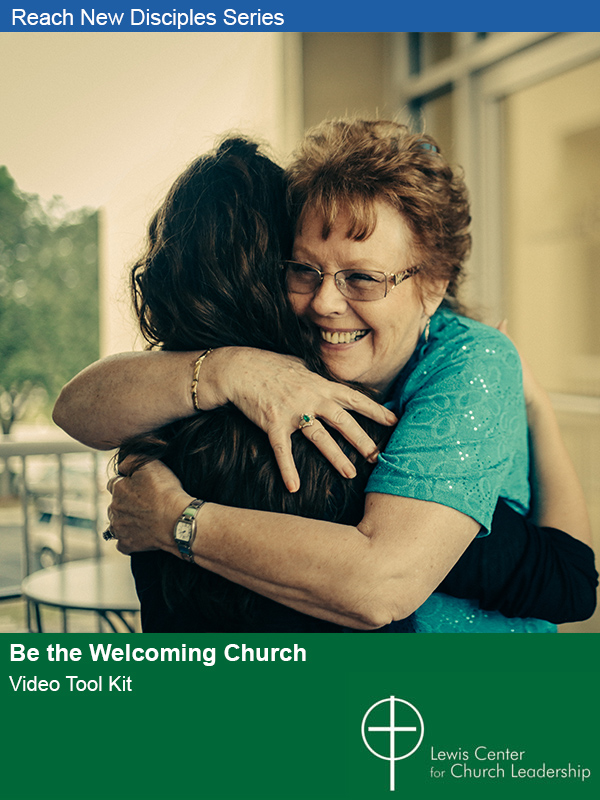Lewis Center Director F. Douglas Powe, Jr., says evangelistic strategies often fail because they don’t meaningfully and respectfully engage those we are trying to reach. Powe highlights key values and practices for reaching others while honoring differences, gleaned from a recent study of the renowned 20th century evangelist, E. Stanley Jones.
It’s tempting to imagine that revitalizing a church is a matter of reverting to an earlier, “purer” tradition, as in the case of Methodists intent on emulating what John Wesley did in the 18th century. Others think it’s a matter of adopting practices that work in other churches. They go to a training event and hear someone say, “Our congregation started growing when we gave out refrigerator magnets,” and think a similar, seemingly easy evangelistic strategy will work for them.
What both approaches lack is an understanding of the importance of contextualizing practices. They fail to distinguish between the idea and the activity resulting from the idea. Sharing the gospel in a pluralistic culture requires that we contextualize the gospel in ways that honor the personhood and the perspectives of those we are trying to reach. I believe these six values and practices are key.
1. Engaging differences
The idea of engaging others who are different is something we often talk about, but we aren’t often successful in living it out. We either seek commonality at all expense, glossing over differences, or we shut down all conversation by demeaning those who disagree with us. We label them as liberal or conservative, progressive or traditionalist, etc. The implication is that they are not even worthy of engaging because we already know their perspective. The ideal of engaging all as children of God means altering the way we approach people, creating a space where all perspectives are honored.
2. Encouraging dialogue
Can we believe that Christ is the only way to salvation and still be open to the beliefs of others? We don’t have to accept the beliefs of others to appreciate their beliefs, to enter into dialogue without shutting them down, and to show genuine interest in what they have to say. Even those who claim to be open-minded can treat others in a cursory manner by failing to really listen to those with different beliefs. We need to genuinely listen and learn from others.
3. Valuing relationships
When individuals who think and believe differently than we do are not swayed to accept our perspective, some of us will stop being in relationship with them. Being in relationship with another is not about conformity, but about authentically seeing the person as a child of God, and treating that person as such, no matter the circumstances. We are called to be in relationship with people who don’t necessarily hold our beliefs.
4. Being accessible to others
It’s easy to paint a picture of society as “going to hell in a handbasket” and close ourselves off from those who aren’t like us. We live in a culture where we often give access only to those who run in similar circles with us. In many cases this is not intentional, but we never move outside of our comfort zones. We need to broaden our circles so that others will see that we are accessible. If I talk about wanting to connect with soccer families, it’s not helpful if I do this from inside my church. I need to hang out in places where those who play soccer attend. This may mean coaching a team or getting involved as a referee. We need to be intentional about building up relationships outside of our normal networks.
5. Becoming more vulnerable
It’s one thing to be accessible but another to be truly open to others. Too often we take the safe route and do things that do not require us to expose ourselves. An example is a feeding ministry where we get to set the terms and control all the resources. How can we be more intentional about entering spaces that we do not control so that those who believe differently will feel comfortable engaging, dialoguing, and relating to us?
6. Recognizing the importance of reciprocity
Our work in Christian outreach can never be one-sided. Too many Christians either abuse their right to speak in the public square by trying to shut down all the other voices, or they fail to speak up in the name of Christ because they do not want to offend. Neither is a reciprocal approach. We need to make space for others so that their voices can be heard. We cannot be afraid of letting others speak and voice opinions that differ from ours.
Our goal should be to be known not simply as Christians but as Christians who cherish the personhood of others. We need to learn to contextualize the gospel with people and not for people as we work to transform lives and communities.
This article is adapted from the conclusion of E. Stanley Jones and Sharing the Good News in a Pluralistic Society (General Board of Higher Education and Ministry, 2018) F. Douglas Powe, Jr., and Jack Jackson, general editors. Used by permission. The book is available through the General Board of Higher Education and Ministry and Amazon.
Related Resources
- Connect with Your Neighbors Video Tool Kit
- Adopting a Missionary Mindset by Douglas Ruffle
- 5 Key Practices for Connecting with Your Context by Mark Gornik and Maria Liu Wong
- Organizing a Missional COMMUNITY by Doug Powe And Hal Knight







